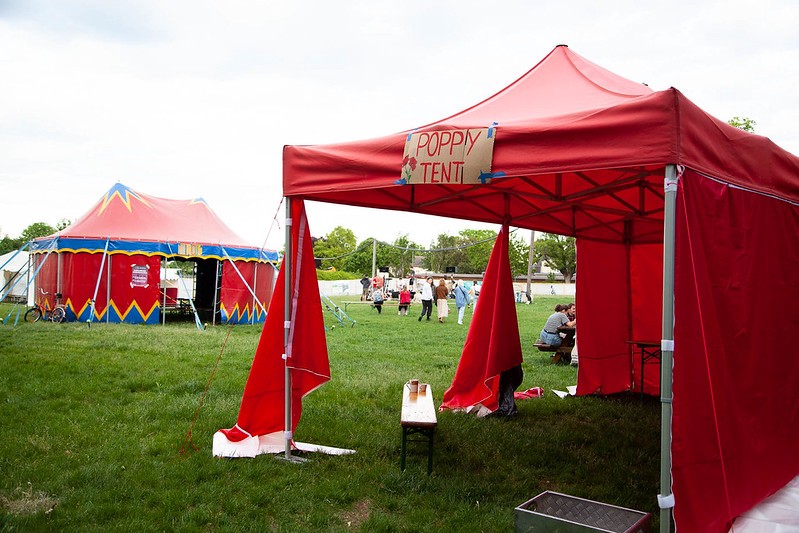Learnings from hosting a visioning workshop at the climate camp in Vienna
2 weeks ago I hosted a workshop at the climate camp in Vienna. The title was “The Private is Political — Developing Visions for a Livable Future”. It was basically a space for participants to explore what is really important to them personally and how that connects to their political positions and motivations. In this quick post I want to share what I learned.
Needs precede political positions
Underneath every political analysis there is some personal need. It might be under a couple layers of rationalizing and “logic thinking”, but I’m pretty convinced that there is some deeply personal and (this is the important part) legitimate need behind all of it. Some things that came up in the workshop where: to be seen as a human the way that I am. To live in a healthy environment with intact ecosystems. To be connected with others and live in community. To have agency.
Discovering needs creates agency
For me discovering these needs behind political positions is great because it creates agency. I can now think about how I want to go about satisfying the needs I discovered, rather than feeling stuck on how to change a whole system so it works according to my political views. Much easier, much more tangible, much more satisfying. And also much more productive: By living your life in accordance with what you need (what you actually need, not what society tells you you should want), you have now successfully done your part in moving the whole system closer in a direction where everyone’s needs are met.

Tending to own needs is generative beyond self
The effects go beyond personal benefit. There is something extremely generative about tending to ones own needs. When someone does it, they are naturally more supportive of others doing the same, they are in a better position to hold space for those around them, because they are more resourced and there is something inspiring about people that take their needs seriously.
Clarity on needs opens up possibility
There are some boundaries to this “individual agency” approach though. There are a lot of circumstances and systems that stand in the way of us fulfilling our need in the way that we need to. (Please forgive me for the over-extensive use of the word need). For example the desire to live in an intact ecosystem is being made more and more impossible by extractive practices that lead to biodiversity loss and degradation of ecosystems. This where the personal need turns into a political position on the societal stage. One might choose to act out that desire by becoming a climate activist, or by working toward living off a plot of land and regenerating it. There are so many ways to satisfy a need when we are clear on what it is. Political positions for the sake of having one, because that is what you do, are more of an intellectual exercise and are restrictive more often than not.
There are very personal reasons for doing the stuff we do “out there in society”. Owning those reasons empowers us to make choices on how to act on them with a lot more clarity and be more effective in bringing about positive change and living a meaningful and fulfilled live at the same time.
And when we can find the right people to walk this walk with, a need for connection and community might automatically be satisfied in the process.

No “right” theory of change
Another thing I (re-)learned was, that everyone has their theories about how we should best go about making positive change happen: through education, tackling economic inequality, raising awareness to reach a critical mass of people around a topic, applying pressure on institutions, solving problems through self-organized direct action, slowly titrating (the process of slowly dripping an alkaline solution into an acid to neutralize it or vice versa) different ways of doing stuff into society to not scare anyone off. I can vividly remember a lot of these proto-theories of change being “the shit” for me at some point. I would get super excited that I found “the solution” and try to convince everyone around me that this was “the way”, then get a bit frustrated because I realized this approach also had limitations, coming across another “the shit” — rinse and repeat. The very loud and clear lesson from the workshop yesterday was: all of them are important. Don’t waste any energy on trying to convince people of your approach to change. Just go do it for a while, see what you can learn and how your perspective on change changes through following one path for a while. It can always change according to what you see, but it is never “lost time” or “heading in the wrong direction” — as long as you don’t do any intentional or reckless harm to others and are willing to own your mistakes of course.
If you found this interesting but are wondering what the hell to do with it or where and how to start getting clear on your needs — please reach out to me, I’d love to have a conversation with you!
